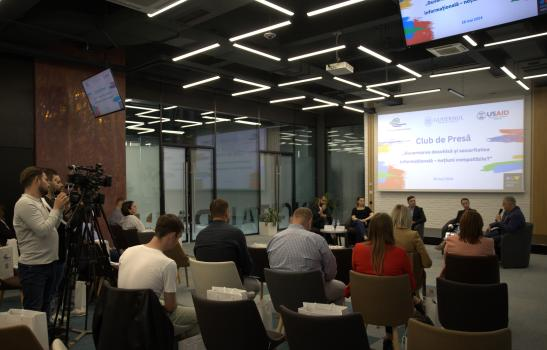Championing Transparency and Civic Engagement Worldwide
Highlights of successful programs in Africa, Central America, and Eastern Europe
The premise of open government is straightforward and impactful: by making government processes, data, and decision-making open to public scrutiny, citizens can hold their leaders accountable, strengthen democratic institutions, and build trust. Today, open government is recognized as a crucial catalyst for economic growth, social progress, and resilient societies. When citizens have access to government information and a voice in policymaking, it fosters an environment conducive to innovation, investment, and inclusive development.
At Cadmus, we are dedicated to collaborating with clients and partners worldwide to empower communities through transparency initiatives and civic engagement programs. Our efforts span diverse regions, unified by the goal of fostering open, responsive, and participatory governance.
Africa: Enhancing Fiscal Transparency and Accountability in Uganda
In Uganda, the USAID Domestic Revenue Mobilization for Development (DRM4D) project has advanced fiscal transparency and fostered an open, accountable tax administration system. By strengthening tax capabilities, expanding the tax base, and improving policies, DRM4D is supporting sustainable domestic resource mobilization. Central to this endeavor are open government principles of transparency and stakeholder engagement.

Through regular consultations with the private sector, tax professionals, civil society, and government bodies, DRM4D has facilitated robust tax law changes aligned with national priorities whilst promoting transparency and public participation in fiscal policymaking. Digitization was prioritized as most or all DRM transactions and databases in Uganda were manual or paper-based, leaving room for manipulation. Digitization significantly reduced cash handling by revenue collectors, ensuring that revenue payments are directly deposited into designated bank accounts by taxpayers using mobile phones or direct deposits. This change has reduced the risk of irregularities and corruption.
Key initiatives included supporting the update of local government revenue registers and data collection by providing tablets, computers, and printers to transform paper-based registers into computerized data formats suitable for uploading into the Integrated Revenue Administration Systems (IRAS) and the Ministry of Local Government’s E-logrev digital system.
DRM4D supported the Uganda Revenue Authority (URA) in improving the Rental Tax Control System (rTCS), resulting in rental income tax performance growing from UGX 117.24 billion (approx. USD 31.2 million) in 2020-2021 to UGX 215.10 billion (approx. USD 57.5 million) in 2022-2023. Procuring high-speed desktops and laptops for URA’s Rental Tax Unit facilitated these improvements. Cities were also encouraged to digitize street parking, resulting in over a 600% increase in monthly revenue from street parking.
Transparency continues to be promoted through real-time access to data on revenue assessment and collection by selected political leaders and officials—new city websites and large screens displaying daily revenue assessments and collections continue to ensure public access to this information. Through written Fiscal Social Compacts, DRM4D empowered citizens to demand specific service delivery in return for paying local taxes. This Three Mayors in Uganda video shows how the cities provided better street lighting, heavy equipment for building roads and improved garbage collection to demonstrate the linkage between service delivery and the payment of taxes.
By fostering fiscal transparency and stakeholder engagement, DRM4D exemplifies Cadmus’ commitment to open government for resilient, self-reliant societies.
Central America: Fostering Cross-Border Transparency
In Central America, Cadmus’ technical assistance through the USAID Regional Trade Facilitation and Border Management (the project) has championed open government principles in cross-border trade activities. By streamlining processes, enhancing efficiency, and digitizing procedures, the project has increased transparency, reduced time and costs, and facilitated inclusive economic growth and stability.
Transparency and accountability are cornerstones of the project. By modernizing procedures and implementing digital solutions, the project has improved data accessibility, empowering stakeholders to make informed decisions and hold governments accountable. This aligns with the open government tenet of proactive information disclosure for public oversight and evidence-based policymaking.

The project has fostered civic engagement and participatory governance by encouraging greater participation from civil society and businesses in cross-border trade activities. By reducing barriers, the project has created an enabling environment for diverse stakeholders to engage in trade policy governance, reflecting the open government principles of promoting inclusive, participatory decision-making processes.
The project has facilitated cross-border collaboration among governments, businesses, and civil society organizations, promoting open dialogue, knowledge sharing, and joint problem-solving—exemplifying open government values of transparency, accountability, and citizen participation in policymaking.
Through its comprehensive approach, the project supports USAID’s efforts to facilitate inclusive economic growth, job creation, and reduced irregular migration, fostering an enabling environment for private sector competitiveness, sustainable development, and regional integration.
Eastern Europe: Balancing Information Security and Transparency
In Moldova, the USAID Moldova Institutional and Structural Reforms Activity (MISRA) project is balancing open government principles with information security amidst heightened risks from the ongoing conflict in Ukraine. Through collaborative efforts with government entities, MISRA supports building public platforms to ensure open data access on one hand and enhance secure public information platforms on the other.
The rise in cyberattacks in recent years has led to concerns about the security of government information systems in the Republic of Moldova. It is estimated that 30 to 40 unauthorized access attempts to government systems are recorded daily, with intent to disrupt citizens’ access to essential public services.

Authorities are taking measures to prevent and neutralize these threats, protecting the country’s critical digital infrastructure. For this reason, it is extremely necessary to explain and discuss the risks, cyber incident management actions within government institutions, the challenges, and solutions for securing government digital platforms with opinion makers, journalists, and civil society. In this respect, on May 28, MISRA hosted the Press Club event “The Open Government and Information Security—Compatible Concepts?“, fostering a crucial discussion on ensuring access to information and proactive transparency while safeguarding digital security.
This event marks Moldova’s participation in the Open Government Partnership’s Challenge Campaign, joining reformers worldwide dedicated to strengthening communities through openness, participation, inclusivity, and accountability.
Across diverse regions, Cadmus is committed to empowering communities, promoting transparency, and fostering civic engagement. Through collaborative partnerships, innovative solutions, and a steadfast commitment to open government principles, we strive to catalyze positive change, nurture trust in institutions, and pave the way for resilient, inclusive societies.